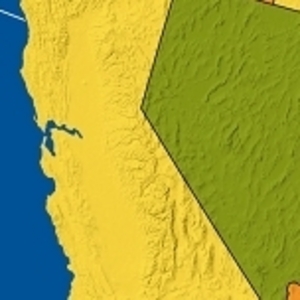UC Davis report addresses compliance costs of California's LCFS

December 30, 2013
BY Erin Krueger
A recent report authored by two University of California, Davis researchers examines the economics of the California low carbon fuel standard (LCFS) program. According to information released by the UC Davis Institute of Transportation Studies, the report found that compliance costs for the LCFS could increase rapidly in the future if there are large differences in marginal costs between traditional fuels and low-carbon fuels. Compliance costs could also increase rapidly due to capacity or technology constraints associated with deploying low-carbon fuels.
Within the report, the authors discuss issues related to future costs of the LCFS and address provisions designed to keep compliance costs at reasonable levels. The analysis also addresses concerns over market power in the California fuel and credit markets, the role of dynamics and uncertainty on market outcomes, and incentives to innovate and invest in renewable fuels and their potential interactions with cost containment mechanisms.
Advertisement
Advertisement
According to the authors, high margins costs of low carbon intensity fuels and technology and capacity constraints are the largest sources of potential compliance cost increases as the LCFS becomes more stringent. They also note that technology constraints associated with deploying low carbon intensity fuels can lead to volatile LCFS credit prices.
In addition, the analysis determined that anticipated future costs will affect current LCFS credit prices. This is related to the ability of obligated parties to bank credits now for future compliance needs. The authors also note that expectations matter. Considering the high degree of uncertainty regarding the future availability of low carbon intensity fuels, the authors note that high expected compliance costs can increase current compliance costs substantially.
The report also includes several recommendations regarding cost compliance mechanisms. First, the authors say the California Air Resources Board should institute a cost containment measure that puts a hard cap on LCFS credit prices. The report also suggests that CARB counteract decreases in incentives to invest in low carbon intensity fuels by directly investing funds raised through a cost containment mechanism in these fuels. Furthermore, the authors point out that while low carbon intensity credit multipliers can reduce compliance costs, they may also decrease incentives to invest in low carbon intensity fuels and to not guarantee that compliance costs will be contained. Finally, the report finds that instituting a price floor for LCFS credit prices could send a clearer price signal to investors in low carbon intensity fuels.
Advertisement
Advertisement
The paper, titled “A Report on the Economics of California’s Low Carbon Fuel Standard and Cost Containment Mechanisms,” was authored by UC Davis researchers Gabriel E. Lade and C.Y. Cynthia Lin. A fully copy of the report can be downloaded from the UC Davis ITS website.
Related Stories
The U.S. EPA on July 8 hosted virtual public hearing to gather input on the agency’s recently released proposed rule to set 2026 and 2027 RFS RVOs. Members of the biofuel industry were among those to offer testimony during the event.
The USDA’s Risk Management Agency is implementing multiple changes to the Camelina pilot insurance program for the 2026 and succeeding crop years. The changes will expand coverage options and provide greater flexibility for producers.
President Trump on July 4 signed the “One Big Beautiful Bill Act.” The legislation extends and updates the 45Z credit and revives a tax credit benefiting small biodiesel producers but repeals several other bioenergy-related tax incentives.
CARB on June 27 announced amendments to the state’s LCFS regulations will take effect beginning on July 1. The amended regulations were approved by the agency in November 2024, but implementation was delayed due to regulatory clarity issues.
SAF Magazine and the Commercial Aviation Alternative Fuels Initiative announced the preliminary agenda for the North American SAF Conference and Expo, being held Sept. 22-24 at the Minneapolis Convention Center in Minneapolis, Minnesota.
Upcoming Events










